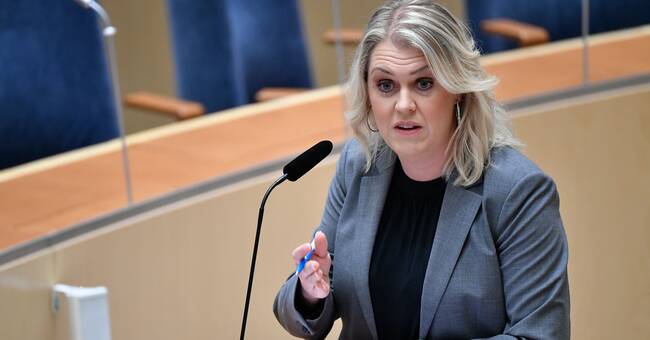The new law, which applies until the last day of September 2021, gives the government the power to decide on more mandatory measures.
This may, for example, be about stopping public transport, regulating how many people may gather in a public place or deciding to close shops and shopping centers.
Minister of Social Affairs Lena Hallengren (S) points out, however, that the main purpose of the new law is not to close businesses, but rather to limit, for example, opening hours and visitors.
- It is about taking different types of restrictive measures that can be targeted much more specifically, she says.
May result in a fine
What is also new is that anyone who violates the measures may be forced to pay a fine.
This applies to both businesses and private individuals.
- The large part is about the county administrative boards to ensure that department stores, sports centers and so on follow the measures they must take.
Then they can be fined if it does not and in the end be allowed to close if they do not take care of themselves, says Hallengren.
- Fines for an individual are about it being obvious that you are breaking rules about banning larger crowds, for example, she continues.
The law will be used shortly
Prime Minister Stefan Löfven says in SVT's Morgonstudion that the new law will be used in the near future.
- We will return when we have information about it.
- It is, for example, public transport.
Now we have the worm recommendation but we may need to do more there.
It is also about gyms, shopping centers and those who rent out premises for parties, he says.
Raised votes on compensation
A majority of the parliamentary parties, more specifically M, C, L, KD and SD, have been critical of the fact that the bill did not contain any promise of compensation for activities that are financially affected by, for example, a shutdown and demand that the right to compensation be clarified.
- When the state decides on closures, the state must take responsibility for the decision.
Compensation as a main rule must be given to the activities that are financially affected.
You must of course pay the rent and leisure to your children even if you work in the private sector, says Lina Nordquist (L) during the parliamentary debate on the new law on Friday.

